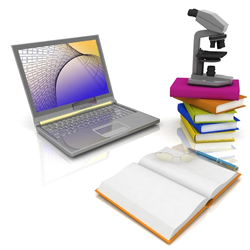
Results from the 2009 Program for International Student Assessment, released in late 2010, showed the United States continuing to fare in the middle of the pack in terms of math and science achievement; U.S. students ranked 25th out of 65 industrialized countries in average math scores on the exam, and 17th in science.
But even before the new PISA figures came out, federal officials had ramped up their efforts to boost science, technology, engineering, and math (STEM) education.
Building on the “Educate to Innovate” initiative he launched in November 2009, President Obama on Jan. 6 announced the creation of several new partnerships to help attract, develop, reward, and retain outstanding STEM teachers. Later in the year, he announced a grant program that challenged students to design their own video games, and he set a goal of recruiting 10,000 new STEM teachers in the next two years. The White House also hosted its first-ever science fair in October to showcase the work of exemplary students.
An Oct. 6 summit revealed the need for more computer-science teachers in particular, as it was revealed that fewer than 65 percent of K-12 schools in the United States offer even an introductory-level computer science course, never mind rigorous training. Educators also debated the merits of introducing national engineering standards into K-12 education this past year, with some believing this was a good idea but others saying there are too many curriculum standards as it is.
Related links:
Solving the STEM Education Crisis
National STEM program increases reach
Teachers get a taste of real-world science—with impressive results
Survey: Educators aren’t discussing STEM careers with students
Technology adds to students’ math comprehension
Survey: Women, minorities need STEM encouragement
House passes major science, technology bill
U.S. ramps up efforts to improve STEM education
eSN Special Report: The Interactive Math Classroom
Obama calls for more STEM teachers, longer school year
Summit: U.S. needs more computer-science teachers
White House honors student achievement in STEM education
Study points to uncertainty of K-12 engineering standards
DARPA-funded project to spark computer science education
What U.S. schools can learn from abroad
- SchoolStatus Launches SchoolStatus Boost, an Innovative Educator Development Solution for Enhanced Teacher Growth and Development - April 22, 2024
- Frontline Education Releases Inaugural K-12 Lens Survey Report To Guide K-12 Decision-Making - April 20, 2024
- Arizona’s Apache Junction Unified School District Supports Innovative Teaching and Learning with New EdTech Resources - April 19, 2024


